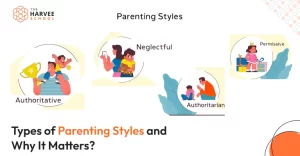How to Overcome Stage Fear?
Stage fear, also known as performance anxiety or stage fright, is a common phenomenon that many people face when they have to speak, act, or perform in front of an audience. Whether you’re preparing for a public speech in your school, a dance performance, or even a meeting presentation, the fear of being judged or making mistakes can be overwhelming. This anxiety can lead to physical symptoms such as shaking, sweating, a racing heart, and even memory blanks.
However, stage fright is not insurmountable. With the right strategies and mindset, you can overcome your fear and deliver confident, engaging performances.
In this post, we will explore practical steps and techniques that will help you overcome stage fear and build your confidence.
Understanding Stage Fear
Before diving into the solutions, it’s important to understand what causes stage fear. Stage fright comes from the fear of being judged. Most people worry that they will make a fool of themselves in front of an audience, which can trigger anxiety. The fear might also come from the pressure to meet expectations, perform perfectly, or be the center of attention.
Another factor is the body’s natural “fight or flight” response, which activates when we feel nervous or threatened. This response prepares the body for action by releasing adrenaline, which can result in physical sensations like an increased heart rate, rapid breathing, dry mouth, or dizziness. While these reactions are normal, they can become overwhelming when you’re under pressure to perform.
Prepare Thoroughly
One of the best ways to combat stage fear is to prepare as thoroughly as possible. When you know your material inside and out, you’ll feel more confident. Whether you’re giving a presentation, delivering a speech, or performing in a play, practice is key.
Rehearse Regularly: Practice your lines, movements, or talking points until you can perform them without thinking. This will help ease the anxiety of forgetting what comes next.
Simulate the Performance: Try rehearsing in front of a mirror or recording yourself. This allows you to see how you appear and hear how you sound, which can boost your confidence.
Know Your Environment: Familiarize yourself with the stage or venue where you will perform. Knowing the layout can reduce surprises on the day of your performance.
Practice Deep Breathing
One of the physical symptoms of stage fright is the fight or flight response, which often causes rapid breathing and a racing heart. These reactions can fuel your anxiety, making it even harder to calm down.
A great way to reduce anxiety is to practice deep breathing. Deep breathing exercises help activate your body’s parasympathetic nervous system, which counters the stress response.
4-7-8 Breathing: Inhale through your nose for four seconds, hold your breath for seven seconds, and exhale slowly for eight seconds. Repeat several times to calm your nerves.
Progressive Muscle Relaxation: Tense and relax each muscle group in your body starting from your feet and moving up to your head. This helps release physical tension and bring your focus away from anxiety.
Visualize Success
Visualizing yourself is a great way to overcome stage fear. Athletes, performers, and public speakers often use this technique to mentally prepare themselves for success. By vividly imagining yourself succeeding in your performance, you can reprogram your brain to associate the situation with positive outcomes instead of fear.
Imagine the Scene: Close your eyes and picture yourself walking confidently onto the stage. Visualize the audience responding positively—whether it’s clapping, nodding, or engaging with your presentation. This mental rehearsal can ease anxiety and increase your chances of success.
Use Positive Affirmations: Along with visualization, recite positive affirmations to counter negative thoughts.
Focus on the Message, Not the Audience
Often, stage fear is rooted in worrying about how the audience perceives us. This focus on self-consciousness can exacerbate anxiety. Instead, redirect your focus from yourself and concentrate on sharing your message.
Concentrate on Your Purpose: Remind yourself why you’re performing or speaking. Whether you’re sharing valuable information, telling a story, or entertaining, focusing on the message helps you stay grounded.
Engage with the Audience: Rather than viewing the audience as a group of judgmental critics, think of them as people interested in what you have to say. Making eye contact with friendly faces can create a sense of connection and reduce anxiety.
Accept Imperfection
Perfectionism is a common source of anxiety for many people. The pressure to perform flawlessly can make the fear of failure seem even more daunting. However, no one is perfect, and mistakes are part of the learning process.
Embrace Mistakes: Understand that mistakes are inevitable. If you slip up during your performance or presentation, simply acknowledge it and move on. Most audiences are forgiving, and they won’t notice small errors unless you draw attention to them.
Shift Your Focus to Progress: Instead of aiming for perfection, focus on the progress you’ve made. Celebrate small victories—whether it’s speaking more confidently or remembering a line that you previously struggled with.
Build Confidence Through Experience
Stage fear often decreases with experience. The more you perform, the more comfortable you become with the process. Start small by seeking opportunities to practice in front of others.
Perform in Low-Stakes Situations: Look for opportunities to practice in front of small groups of friends or family. These low-pressure environments help you get used to performing without overwhelming anxiety.
Gradually Increase Difficulty: As you become more confident, seek out bigger audiences or more challenging situations. Over time, you’ll develop the skills to handle more pressure with ease.
Use the Power of Humor
Humor is a great way to ease tension and start things off on a positive note. If you make a mistake, use humor to lighten the situation. A well-timed joke or a self-deprecating remark can endear you to the audience and reduce the pressure you feel.
Be Authentic: It’s important to be genuine with your humor. Forced or rehearsed jokes can come across as awkward. Instead, let the humor come naturally as part of your personality.
Laugh at Yourself: If you make a mistake, instead of stressing over it, laugh it off. Audiences tend to appreciate authenticity and are much more forgiving when you show that you don’t take yourself too seriously.
Conclusion
Overcoming stage fear is a journey that requires practice, patience, and persistence. By preparing thoroughly, practicing relaxation techniques, visualizing success, and focusing on the message rather than the audience, you can gradually build confidence and reduce your anxiety.
Remember, even the most experienced performers face stage fright—it’s a natural part of being human. Embrace your nerves, accept imperfections, and take every opportunity to build your stage presence. With time and effort, stage fright will no longer hold you back from delivering your best performance.






